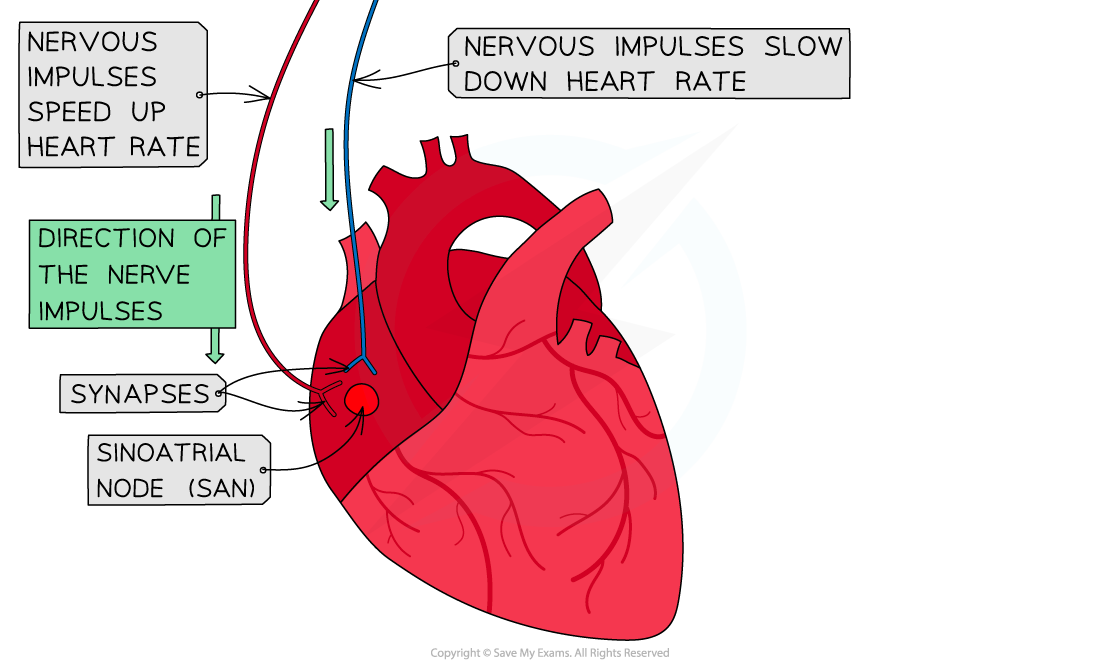- 翰林提供学术活动、国际课程、科研项目一站式留学背景提升服务!
- 400 888 0080
IB DP Biology: HL复习笔记6.2.5 The Heart Rate
Heart Rate: Alteration by Nervous System
- Although the heart muscle maintains a base heart rate via myogenic stimulation, there are several circumstances that can cause an individual's heart rate to change, e.g.
- Exercise
- Stress
- Relaxation
- The brain is involved in the regulation of heart rate, though it does not require conscious thought
- The branch of the nervous system that does not require conscious thought is known as the autonomic nervous system
- The area of the brain that controls heart rate is the cardiovascular centre, located in a region of the brain called the medulla
- The medulla is found at the base of the brain near the top of the spinal cord
- Two nerves connect the medulla with the sinoatrial node (SAN):
- One nerve connects to the acceleratory centre, which causes the heart to speed up
- This happens in response to low blood pressure, low oxygen concentrations and low pH
- These changes might occur during exercise
- The blood vessels dilate, causing a decrease in blood pressure
- The muscle cells are using up oxygen at a faster rate, causing blood oxygen levels to drop
- The production of carbon dioxide by respiring cells causes blood pH to decrease
- The other nerve connects to the inhibitory centre, which causes the heart to slow down
- This happens in response to high blood pressure, high oxygen concentrations and high pH
- These changes are likely to occur when the body is at rest
- One nerve connects to the acceleratory centre, which causes the heart to speed up


The heart rate is controlled by the cardiovascular centre in the medulla
Heart Rate: Alteration by Hormonal System
- Epinephrine, also called adrenaline, is produced by the adrenal glands, located above the kidneys, in times of fear, stress, or excitement
- The brain controls the release of epinephrine from the adrenal glands
- Epinephrine increases the heart rate and boosts the delivery of oxygen and glucose to the brain and muscles, preparing the body for ‘flight or fight’
- Increased glucose and oxygen are needed by the cells for aerobic respiration to release energy, e.g. to fuel the muscles to move/run away!
转载自savemyexams

最新发布
© 2025. All Rights Reserved. 沪ICP备2023009024号-1









